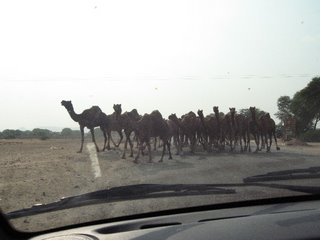The idea of dual citizenship is difficult for many Americans to get their heads around, including me. People whose parents were forced out of Nazi Germany, if they meet the right conditions, can get German citizenship. The benefits include being able to live and work in the European Union (EU) without going through complex work permit paperwork. My son, after dealing with the Danish bureaucracy while working there for a year has suggested it would be nice to have.
For those of us who think of ourselves as citizens of the world and believe that human beings are human beings wherever they live, perhaps getting a second citizenship is the first step to living that ideal.
The US State Department says:
The concept of dual nationality means that a person is a citizen of two countries at the same time. Each country has its own citizenship laws based on its own policy.Persons may have dual nationality by automatic operation of different laws rather than by choice. For example, a child born in a foreign country to U.S. citizen parents may be both a U.S. citizen and a citizen of the country of birth.
A U.S. citizen may acquire foreign citizenship by marriage, or a person naturalized as a U.S. citizen may not lose the citizenship of the country of birth.U.S. law does not mention dual nationality or require a person to choose one citizenship or another. Also, a person who is automatically granted another citizenship does not risk losing U.S. citizenship. However, a person who acquires a foreign citizenship by applying for it may lose U.S. citizenship. In order to lose U.S. citizenship, the law requires that the person must apply for the foreign citizenship voluntarily, by free choice, and with the intention to give up U.S. citizenship.
Intent can be shown by the person's statements or conduct.The U.S. Government recognizes that dual nationality exists but does not encourage it as a matter of policy because of the problems it may cause. Claims of other countries on dual national U.S. citizens may conflict with U.S. law, and dual nationality may limit U.S. Government efforts to assist citizens abroad. The country where a dual national is located generally has a stronger claim to that person's allegiance.
However, dual nationals owe allegiance to both the United States and the foreign country. They are required to obey the laws of both countries. Either country has the right to enforce its laws, particularly if the person later travels there.Most U.S. citizens, including dual nationals, must use a U.S. passport to enter and leave the United States. Dual nationals may also be required by the foreign country to use its passport to enter and leave that country. Use of the foreign passport does not endanger U.S. citizenship.Most countries permit a person to renounce or otherwise lose citizenship.
Information on losing foreign citizenship can be obtained from the foreign country's embassy and consulates in the United States. Americans can renounce U.S. citizenship in the proper form at U.S. embassies and consulates abroad.
Looking around the web, I see that some liken dual citizenship to bigamy. I think for some it's more like a Yankee fan also rooting for Boston. But what if you have dual citizenship with a close ally of your home country? More and more countries are allowing dual citizenship, though some, like Holland, are pulling back.
Californians elected dual-passport holder Arnold Schwartzenegger (Austria) and but Michele Bachman (Switzerland) decided keeping her Swiss passport wasn't a good idea when she was running for president.
Clearly, it's a very emotional issue for people whether they are for it or against it. Anyone perceived as leaving 'their group' whether it be a business, a religion, or a country may be perceived by some members of the original group to be a traitor. I suspect that has more to do with the offended person's issues than those of the person leaving. And, of course, dual citizenship isn't actually leaving.
Congratulations to Jacob.













